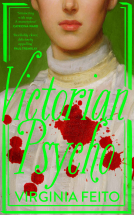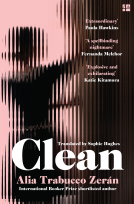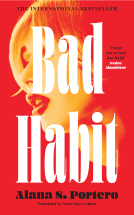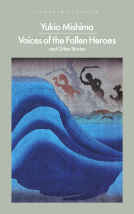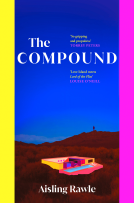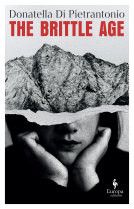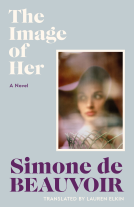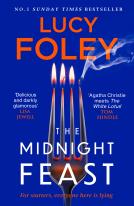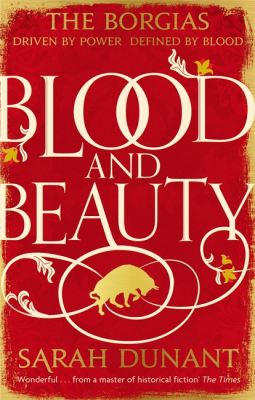
Blood & Beauty
by Sarah Dunant
This title was previously available on NetGalley and is now archived.
Send NetGalley books directly to your Kindle or Kindle app
1
To read on a Kindle or Kindle app, please add kindle@netgalley.com as an approved email address to receive files in your Amazon account. Click here for step-by-step instructions.
2
Also find your Kindle email address within your Amazon account, and enter it here.
Pub Date 3 Apr 2014 | Archive Date 2 Mar 2017
Description
By the end of the fifteenth century, the beauty and creativity of Italy is matched only by its brutality and corruption. When Cardinal Rodrigo Borgia buys his way into the papacy, he is defined not just by his wealth, charisma and power, but by his blood: a Spanish Pope in a city run by Italians. If he is to succeed, he must use his Machiavellian son and innocent daughter.
Stripping away the myths around the Borgias, Blood & Beauty breathes life into the astonishing family of Alexander VI and celebrates the raw power of history itself: compelling, complex, and relentless.
A Note From the Publisher
Requests from UK readers only please.
Available Editions
| EDITION | Paperback |
| ISBN | 9781844087457 |
| PRICE | £7.99 (GBP) |
| PAGES | 544 |
Featured Reviews
This is a wonderfully engaging re-telling of the Borgia family story from Roderigo's election as Pope Alexander VI in 1492 to Lucrezia's third marriage into the d'Este family in 1502. Dunant resists just churning out the usual scurrilous stories of incest, poisoning, murder and decadence, and instead offers a more complex tale of complicated politics and characters.
The narrative is marked by a sly wit: `the Pope sits in darkness in his bedchamber. Recently his legs have been causing him trouble. Perhaps he is not used to spending so much time on his knees', and is clear-sighted about the characters: `To be lauded as a hero for a battle that everyone knows you didn't win could be a burden as much as a triumph. Juan, however, manages to remain oblivious'.
At the book's heart is Roderigo (pope, devoted family man, easily moved to tears yet ruthless when necessary) and the wonderfully menacing and yet dangerously charismatic Cesare who steals every scene in which he appears. Dunant manages his portrait sensitively and gives him a psychological acuity frequently missing from the more sensationalist literature: her treatment of the capture of Caterina Sforza, for example, is masterly.
Dunant's previous Renaissance books haven't really worked for me but I loved this. It's one of those rare books that I wanted to read slowly to savour the pleasure of every page - and I can't wait for the second volume in the story.
 The Idle Woman ., Reviewer
The Idle Woman ., Reviewer
4.5 stars.
In 1492 the Spaniard Rodrigo Borgia is elevated to the papacy as Pope Alexander VI. It’s an appointment based less on piety than political shrewdness. Generous to his friends and flexible in his scruples, Alexander may not be the pope that Rome wants, but he is the one that it deserves. After all, Renaissance Rome is a seething, ambitious, dangerous city where life is merely a poor shadow of its ancient vanished grandeur. There are as many courtesans as clerics; anything can be had at the right price; and a man can be made to disappear between dusk of one day and dawn of the next. If the Tiber keeps its secrets, he might never be seen again.
Beyond the city, the other Italian states squabble among themselves, and France and Spain linger on the sidelines, waiting for a chance to strengthen their own hand in the peninsula. And, if the world around him is imperfect, Alexander is no less so, with his beautiful young mistress, Giulia Farnese, and his four beloved children: vain, lecherous Juan; sullen Jofre; beautiful, naive Lucrezia; and self-contained, calculating Cesare, who nurses a warrior’s heart underneath his cardinal’s robes.
With three extremely good books on Renaissance Italy behind her (The Birth of Venus; In the Company of the Courtesan; and Sacred Hearts), Sarah Dunant is predictably in her element here. She knows this period and the political jostling like the back of her hand and it shows. As far as I can tell, everything is historically accurate or founded on a shrewd assessment of what is likely to have happened (trust me: I tried to catch her out several times, but was foiled on every occasion). I actually enjoyed this even more than the earlier three novels, perhaps because it is more purely historical, and done so well. Unlike many novels about the Borgias, there’s no sensationalism, and the story actually flows better without it: because, with history this good, why make it up?
For the full review, please visit the link to my blog given below.
https://theidlewoman.net/2013/10/29/blood-beauty-sarah-dunant/
Readers who liked this book also liked:
Donatella Di Pietrantonio
General Fiction (Adult), Literary Fiction, Mystery & Thrillers


